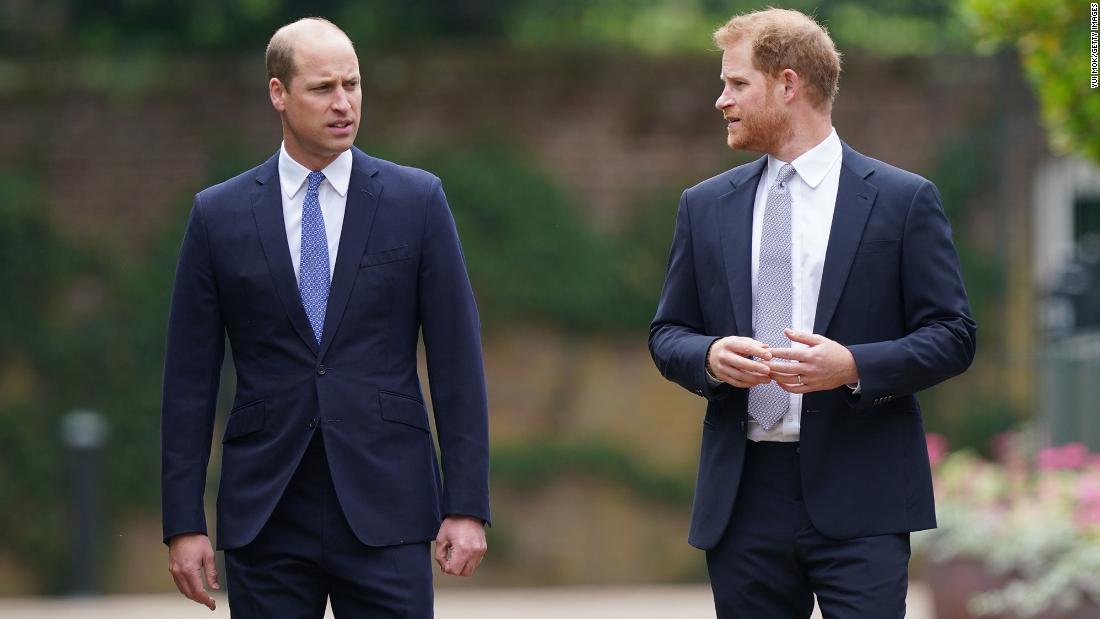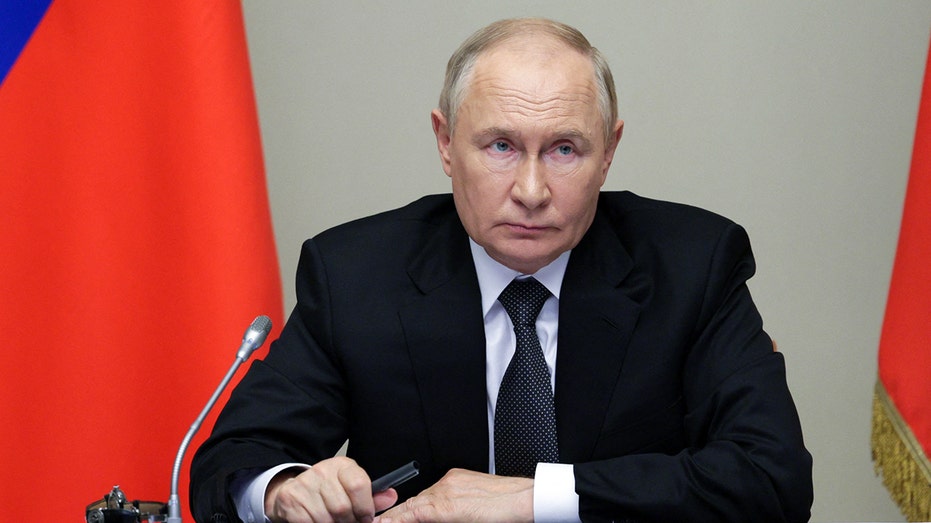- by foxnews
- 22 Nov 2024
How to know when it's time to walk away from a sibling

Editor's Note: Sign up for CNN's Stress, But Less newsletter. Our six-part mindfulness guide will inform and inspire you to reduce stress while learning how to harness it.
After Prince Harry's accounts of a troubled relationship with his brother, Prince William, in his memoir, "Spare," made waves, you may have wondered if there was any hope for a relationship so fraught - especially if you're navigating a similar sort of rift.
Though strong relationships among siblings have been linked with greater health and happiness, sibling estrangement is probably more common than schisms between parents and adult children, said Joshua Coleman, a psychologist in private practice in the San Francisco Bay Area and a senior fellow with the Council on Contemporary Families. Parents are more highly motivated to repair those relationships because of their role and the shame and sadness that can come from being on the outs with a child, Coleman said.
"For siblings, there aren't the same kind of expectations of staying in touch," said Coleman, author of "Rules of Estrangement: Why Adult Children Cut Ties and How to Heal the Conflict." "Siblings don't have the same kind of role violation that can produce shame that can serve as a motivator or as an impetus towards repair."
Distancing or ending a relationship with a sibling can still feel difficult or shameful, but people who initiate estrangement feel there are benefits, according to Coleman.
"Assuming they've done their due diligence and the (other) sibling remains either unable or unwilling to modify or change their behavior, a break from the relationship may be better for mental health than a continuance," Coleman said.
For cases that aren't so clear-cut, Coleman has guiding principles for knowing when the relationship is worth saving and when cutting ties is better.
This conversation has been edited and condensed for clarity.
CNN: What are the most common triggers for sibling estrangement?
Coleman: Typical reasons why sibling rifts or estrangement begin include perceived or objectively differential treatment by parents, which can cause one sibling to distance themselves because they feel less valued. A history of emotional, physical or sexual abuse by a sibling can be traumatizing, especially if they haven't made amends or if the hurt sibling hasn't been able to forgive. Sibling rivalries - sometimes sparked by one feeling jealous of or threatened by the other's success - also can drive a wedge.
Sometimes a sibling might begin by estranging themselves from parents, but if the other sibling doesn't ally with them or is critical of their estrangement, that can produce a feeling of, "Well, you're either for me or against me."
CNN: What's the first step when faced with repeated conflict?
Coleman: You have to do due diligence on the relationship, in that you have to give people the opportunity to repair and communicate your needs in a way that really invites self-reflection and empathy on the other person's part, rather than more hurt and defensiveness.
You might feel hurt, shamed, humiliated, criticized or diminished by your sibling's behavior. I think it's reasonable, then, to say, "I need you to change this to continue to have a relationship with me. I feel like my ask of you is very reasonable, and it's my strong preference that we change how we communicate. Maybe there are things you might want me to work on as well. But I am beginning to feel that if this isn't something that you're able to work to modify, I need to be out of contact for perhaps a significant period of time with you."
Certainly, someone who is abusive is out of control and requires strong limits to counteract their behavior. That doesn't mean they should never be given the chance to repair or reconcile, but only after they've shown a willingness to commit to making amends and changing.
CNN: When is the relationship worth repairing?
Coleman: When estranged siblings are seeking reconciliation, typically one person is more motivated to heal it than the other and therefore takes more of a leadership role in repairing the dynamic - just kind of showing empathy, being willing to make amends or take responsibility, etc.
If the other person is showing genuine empathy and is willing to not be defensive, to commit to change, to be respectful of your boundaries or requirements for a healthy relationship, those are really the key ingredients to any healthy relationship that's in need of repair.
CNN: When is cutting ties the best thing to do?
Coleman: I really struggle with that question because I feel like our culture is too endorsing and too quick to cut ties, so every person has to make that decision for themselves.
When someone is contemplating something so consequential, it requires a degree of self-reflection. Are you too sensitive to everyone? Are you constantly ghosting people in every aspect of your life? Are you accusing everybody of gaslighting you if they don't agree with your perception of events? Are you just cutting out one more person because you can't tolerate conflict?
Sometimes taking a break from the relationship can be useful if you feel too enmeshed with them to be able to separate your own identity from what gets triggered. For some people, some period of distance in which they're not constantly being triggered or reminded about things about themselves they don't like or feel upset about could be useful.
Assuming you've done all the other steps of due diligence, sometimes ending contact for a while might be a good wake-up call for that sibling.
CNN: How much of a grace or trial period should someone give?
Coleman: Nobody's going to be 100% perfect once new boundaries are in place. The goal is to agree that the new dynamic will be worked on together, because maybe the person who's engaging in the hurtful behavior isn't aware of it or needs to be educated in an ongoing way.
Give it a few months at least, during which you continue to engage and debrief after interactions. You might say, "I thought it went great. However, I am triggered or upset when you start defending Mom and Dad to me or get competitive with me about something."
CNN: How should people distance or end the relationship?
Coleman: Say, "I feel like I've tried to explain to you the problems I see in the relationship, and to give you an opportunity to respond to or work on them. And it feels like you either haven't been able to or haven't been that motivated to, so it decreases my desire to spend time with you. So, for the time being, I'd like to take a break from the relationship. And I can let you know if or when that changes."
CNN: What do people tend to experience after changing or severing a sibling relationship, and how can they cope?
Coleman: Typically, the person who ended the relationship isn't in as much pain as the person who was cut off. The person who ends things may feel relieved or happy.
It isn't always all upsides, though. Ending the relationship means we're not only losing contact with the parts of them we don't like, we're also losing contact with the parts we do like. There can be a feeling of loss or sadness about giving up or recognizing the person may not be willing to change.
They might also feel shame and guilt if the other family members are upset with them or pressuring them to be back in contact.
Remind yourself of the effort you put in and that if you're shaming yourself for your decision, you're only adding insult to injury. You did give that person a reasonable period for due diligence, so this isn't something you've done in some capricious or selfish way.
CNN: What if the estrangement causes issues with other family members?
Coleman: Be empathic about their pain while firmly stating that you've worked hard to get your sibling to respond differently to you, but they've been either unwilling or unable - so this isn't a decision you've made lightly. You can't just maintain a relationship with your sibling because your parent wants you to.
- by foxnews
- descember 09, 2016
Ancient Jewish manuscripts dating back 2,000 years on display at Reagan Library
The Ronald Reagan Presidential Library in Simi Valley, California, has opened an exhibit featuring a collection of ancient Jewish manuscripts along with 200 other artifacts.
read more


